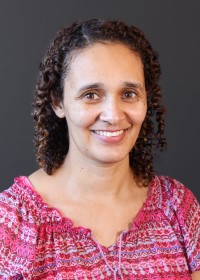#28 Early career specials
Welcome to the special episode of our podcast, where we showcase the work of early career scholars in health professions education from around the world. This is part one of a two-part series, where we will hear from three different researchers who have been nominated by colleagues to share their projects and insights with us.
In this episode, we will learn about the diverse topics and methods that these scholars are using to advance the field of health professions education. From every continent except Antarctica, they are tackling issues such as curriculum design, assessment, feedback, professional identity, and more. We hope that their stories will inspire you to connect with them, explore their work, and pursue your own education scholarship.
Enjoy listening to us at your preferred podcast player:
Presentation of the researchers
Meet Anthea, Megan and Sarah, the three researchers who have been nominated by colleagues to share their projects and insights with us.
Anthea Hansen

Anthea Hansen is a lecturer and a PhD candidate in health professions education at Stellenbosch University in Cape Town, South Africa. She’s originally an audiologist by health professions training and is now working on her PhD on disability studies. Her research interests include interprofessional education, community-centered health professions education design, and social justice in health professions education.
She is currently conducting a PhD study on the understandings and practices of health professions educators towards socially responsive curricula in six South African institutions. She uses qualitative methods such as interviews and focus groups to explore how educators conceptualize and enact socially responsive curricula, and how this impacts their teaching and learning. She aims to contribute to the theory and practice of health professions education that addresses global health inequities and promotes social justice.
Her work has been recognized and supported by her colleagues and mentors, such as Dr. Sa’ad Lahri from Tigerburg Faculty of Medicine, who nominated her as an early career scholar to be featured in this podcast. She has also published her work in reputable journals, such as Advances in Health Sciences Education, where she co-authored a paper titled “Understandings and practices towards socially responsive curricula for the health professions”.
Hansen, A., Engel-Hills, P., Jacobs, C., Blitz, J., Cooke, R., Hess-April, L., Leisegang, K., Naidoo, N., Volschenk, M., & van Schalkwyk, S. (2023). “Understandings and practices: Towards socially responsive curricula for the health professions”. Advances in Health Sciences Education, 28(4), 1131–1149.
To learn more about the project “Exploring the development and application of a responsive curriculum framework for healthcare professionals in South Africa”, visit the Centre for Health Professions Education website.
You can reach out to Anthea through the staff page (Centre for Health Professions Education)(CHPE) and Antheas Hansens LinkedIn Profile
Megan Brown

Megan Brown is a senior research associate at Newcastle University in the UK, where she completed her PhD in medical education in 2022. Her doctoral research examined the identity development of medical students and graduates over longitudinal clerkships, using qualitative methods and arts-based approaches. She has published her work in prestigious journals, including the BMJ where she co-authored a paper on gender bias in medical education with the catchy title “Too male, too pale, too stale.” She is also an expert in poetic inquiry—a creative and innovative method that uses poetry as a form of data collection and analysis. She has published a methods paper on poetic inquiry in Perspectives on Medical Education, explaining how this method can challenge the dominant structures and norms of data collection and analysis, and offer more diversity and flexibility in research methods and methodologies.
Megan’s current and future research interests are focused on equity and disability in medical education. She aims to explore the experiences of those who are disabled and who are pursuing careers in medical education. She is interested in how disability is constructed and experienced in medical education, and how it affects the identity and agency of disabled medical educators. She also wants to investigate how medical education can be more inclusive and supportive of disabled learners and educators, and how it can promote social justice and human rights for people with disabilities. Megan is a trailblazing researcher who pushes the boundaries of our field and challenges us to do better. She is someone to watch and follow.
Check out all Megans’ research at Research Gate. You can contact her via mail.
Social media: @Megan_EL_Brown on X, and Megans LinkedIn profile.
Brown, M. E. L., Kelly, M., & Finn, G. M. (2021). “Thoughts that breathe, and words that burn: Poetic inquiry within health professions education”. Perspectives on Medical Education, 10(5), 257–264.
Brown, M. E. L., Hunt, G. E. G., Hughes, F., & Finn, G. M. (2020). ” ‘Too male, too pale, too stale’: A qualitative exploration of student experiences of gender bias within medical education”. BMJ Open, 10(8), e039092.
Sarah Burm

Sarah Burm is an assistant professor at Dalhousie University in Halifax, Canada, where she works in the Office of Continuing Professional Development and Medical Education. She is also an award-winning medical educator and a leader in the field of medical education research.
Sarah’s research focuses on the social, cultural, and ethical aspects of medical education, especially how they affect learners’ professional identity, formation, and well-being. She uses qualitative methods, such as narrative inquiry and visual analysis, to explore the experiences and perspectives of diverse groups of medical learners, such as Indigenous, racialized, and marginalized students.
One of her recent papers, published in 2022 in Medical Education, is titled “Navigating the Burden of Proof and Responsibility – a Narrative Inquiry into Indigenous Medical Learners’ Experiences”. In this paper, she examines the challenges and opportunities that Indigenous medical students face in pursuing their career goals and maintaining their cultural identities. She argues that medical education institutions need to support and amplify the voices of Indigenous learners, and create more inclusive and respectful learning environments for them.
Sarah Brown has used photo elicitation in her work to explore the experiences of Indigenous medical learners and how they navigated the tension between their identities and cultures. She asked the learners to take photographs that reflected their experiences of medical education and then discuss them in interviews. She used the photographs as a stimulus to elicit rich and meaningful data from the participants. She also analyzed the photographs as a form of data, looking at the visual elements and themes that emerged from them.
If you want to learn more about Sarah and her work, you can visit her webpage Dr. Sarah Burm (Dalhousie Medical School) or contact her by email: sarah.burm[at]dal.ca.
Photo elicitation is a method of interview used in research which incorporates photographs in the interviews. The method is participatory-oriented and is used in different research areas such as visual sociology, marketing research, and public health. In the method, images are used to prompt and guide in-depth interviews and to evoke reactions from the interview participant. The purpose of photo elicitation is to record how subjects respond to images, attributing their social and personal meanings and values, and to allow the interview to be more driven by the participant.
Burm, S., Deagle, S., Watling, C. J., Wylie, L., & Alcock, D. (2023). “Navigating the burden of proof and responsibility: A narrative inquiry into Indigenous medical learners’ experiences”. Medical Education, 57(6), 556–565.


0 comments